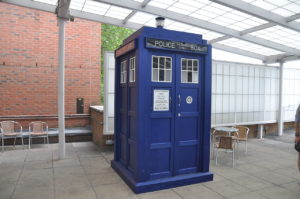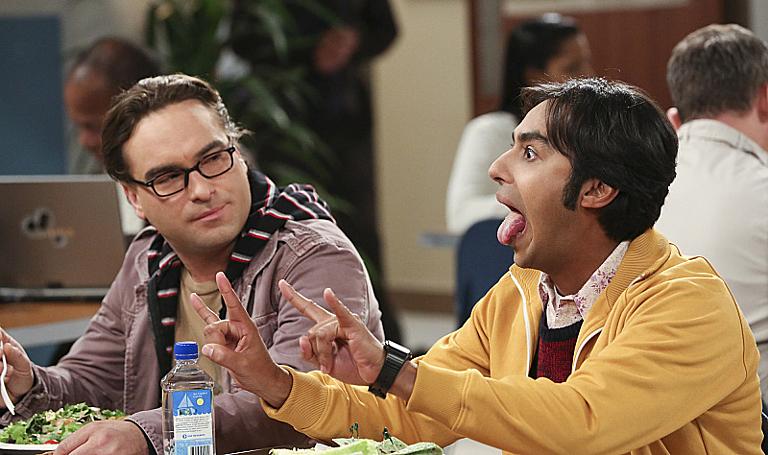It’s uncanny how many people assume I’m a fan of the Big Bang Theory when they learn how much of a fangirl I am.
Even more interesting is their surprise when I tell them the exact opposite is actually true.
A show focusing on characters sharing my interests and level of discomfort in new social situations would seem to be right up my alley.
But, while I am a self-proclaimed nerd, I am first and foremost a feminist and it is through these lenses that I find my primary issues with the show.
At some point in Hollywood history, it was decided to place the nerds as protagonists in film to shake things up a bit and thus, Revenge of the Nerds was born.
Unfortunately, somewhere along the line there came an idea that this would only be accomplished if they acted in creepy, entitled, and sexist ways towards women.
Because the hurtful words and rape scenes infilmslike Revenge of the Nerds and Sixteen Candles are practiced by nerds,they’re represented as “non-threatening” and even “comically endearing.”
This trope is incredibly harmful to young viewers in particular because it suggests that sexism is mostly harmless and merely another “socially awkward personality quirk” of social outcasts when that is anything but the case.
The Big Bang Theory is no children’s show but its reinforcement of these ideas still structure how viewers perceive sexist situations in real life and their idea of what makes up an actual social outcast.
Aside from portraying the four male leads as every Hollywood nerd stereotype known to humankind, the writers appear to be under the assumption that only men are a part of geek culture.
As a woman with a full-size TARDIS in her garage, I can safely say that this is not the case.
While the “socially awkward white male nerd” may have made frequent appearances in Hollywood classics with no sign of female ones, times have changed, and much of the mainstream media has changed with it.
It thus remains a bit of a puzzle as to why a show like the Big Bang Theory – which actually had a scene depicting men in a comic book store turning their heads as a woman enters – is currently on their eleventh season and counting.
News flash: no means no and to follow that line with a laugh track essentially invalidates the problem of rape.
The problem isn’t just the lack of female nerds, but also the attitudes of the female characters who are regulars on the show towards geek culture.
Viewers are meant to identify with Penny’s “normalness” as she raises an eyebrow every time her male counterparts show excitement in a particular game or television show.
Aside from implying that such excitement is dumb and to be seen as child’s play, this tactic uses the even older trope of women looking out for and pitying mens’ foolish antics.
Even well-educated women like Amy and Bernadette are shown to view “geeky habits” with disdain because, apparently, women must always be the socially adept ones.
This doesn’t mean they always make smart decisions, but they are almost always the ones who either lecture the men for doing something stupid or complain about it with each other during a girls night out.
It’s 2018, the idea that “all nerds are men” should be long dead.
Even more disturbing is the incredibly sexist things the men say to the women around them.
Howard’s frequent stalking and harassing of women is played off as a running joke, Penny never directly states that his placing of a webcam in her teddy bear was creepy.
Both Raj and Leonard are played off as “nice guys,” their own sexist behaviors shown to be adorably incompetent.

Raj’s inability to talk to women doesn’t stop him from making highly suggestive and insensitive remarks when drunk, even completely undressing in front of a woman while out in public, ignoring her protests.
There are plenty of other ways to make a drunk character amusing without the expense of female characters.
Leonard not only enables his friends’ behavior by making excuses for them but he himself refuses to take no for an answer.
After being asked how he ended up with a woman like Penny, she replies, “He started to slowly wear me down.”
News flash: No means no and to follow that line with a laugh track essentially invalidates the problem of rape.
Sheldon’s inability to sensor himself is his excuse for constantly belittling and blaming women for the most miniscule of problems.
This could be played off as a problematic character trope if it was actually addressed properly, but it’s not.
His friends merely roll their eyes or laugh with him.
The writers get away with this behavior by occasionally having a character point out a sexist joke.
The problem here is that it’s not challenged in any way, it’s just stated as a fact and then brushed off in a humorous way.
Rather than writing better punchlines, this method is continued from season to season to duck out of potential criticism.
Shows with humor and themes like The Big Bang Theory should have been cancelled in favor of better written ones years ago, their humor might have fit in 70’s culture but it’s extremely out of date today.
As fans, it is up to us to be aware of the shows we’re consuming because they represent the kind of ideas we want to practice in the world.
